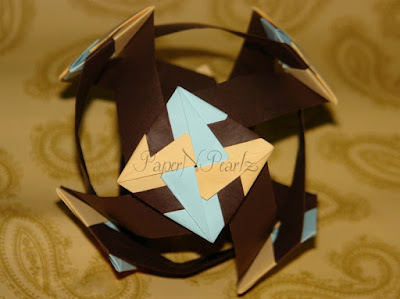A catamaran is a boat with two structures that are joined together by a frame. It is a stable boat and quite fast as well, and is a common sight on seas and beaches, especially during summer.
The origami catamaran is a great design to fold on a hot summer day. The design is by Maarten van Gelder. The sail is in a different colour than the rest of the boat, so paper with a solid colour on one side and print on the other is great.
I had some trouble when I folded this initially, at Step 7 of the diagram, where the model is collapsed into shape. I had thought that the creases from Steps 3 to 6 were only for the top layer. I discovered, after fighting with Step 7, that the creases for the layer below as well!
Model Details:
Model: Catamaran
Creator: Maarten van Gelder
Website: Maarten van Gelder
Difficulty Level: High Intermediate
Paper Ratio: Square
Paper Size: 7 inches
Model Size: ~5 inches * ~4 inches
Instructions: Diagrammed Models
The origami catamaran is a great design to fold on a hot summer day. The design is by Maarten van Gelder. The sail is in a different colour than the rest of the boat, so paper with a solid colour on one side and print on the other is great.
I had some trouble when I folded this initially, at Step 7 of the diagram, where the model is collapsed into shape. I had thought that the creases from Steps 3 to 6 were only for the top layer. I discovered, after fighting with Step 7, that the creases for the layer below as well!
Model Details:
Model: Catamaran
Creator: Maarten van Gelder
Website: Maarten van Gelder
Difficulty Level: High Intermediate
Paper Ratio: Square
Paper Size: 7 inches
Model Size: ~5 inches * ~4 inches
Instructions: Diagrammed Models















